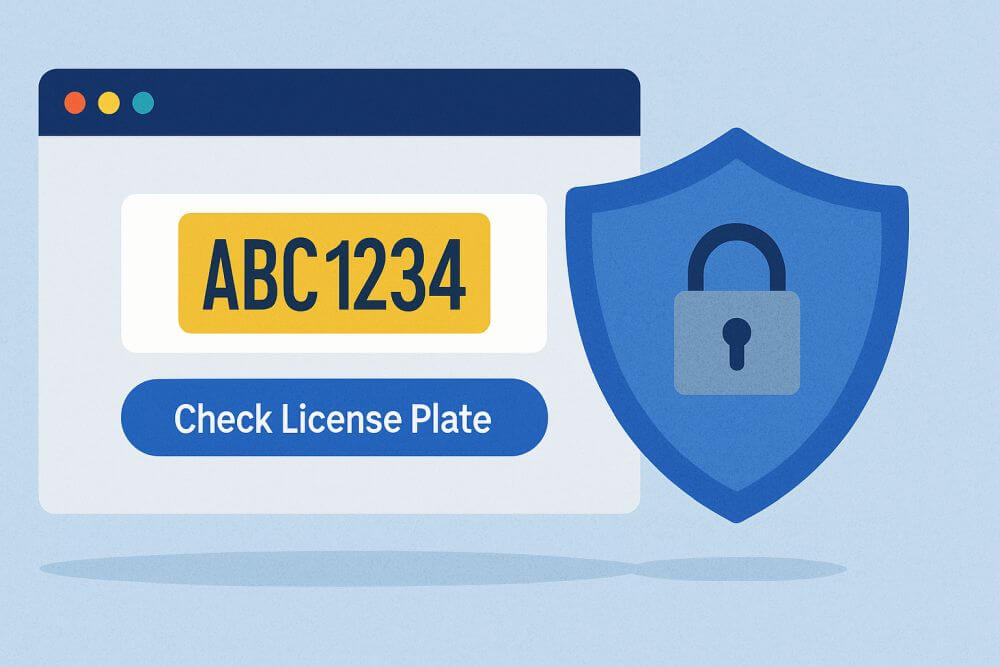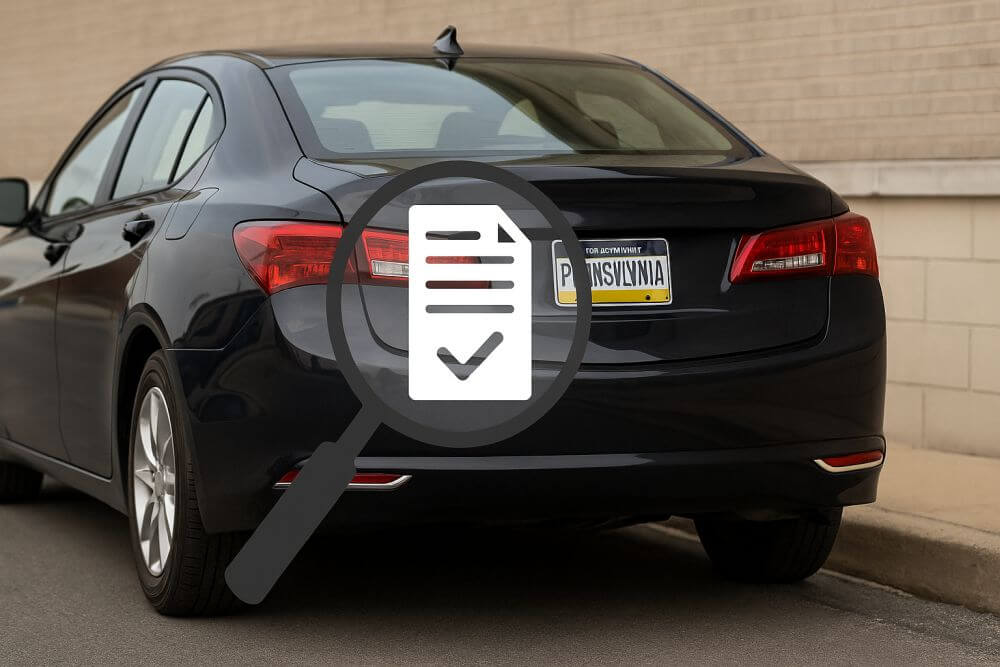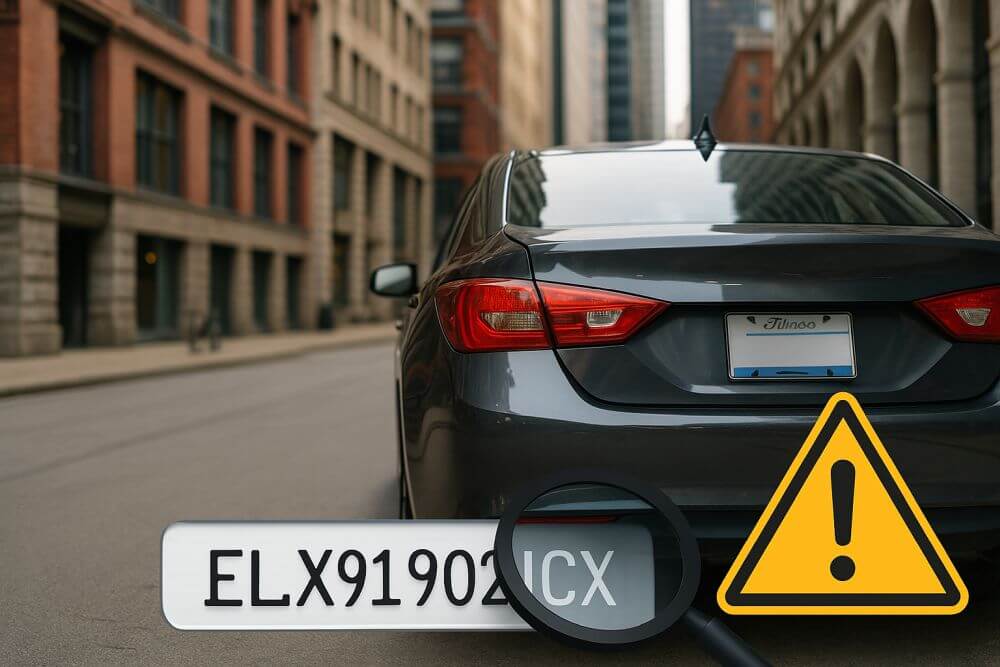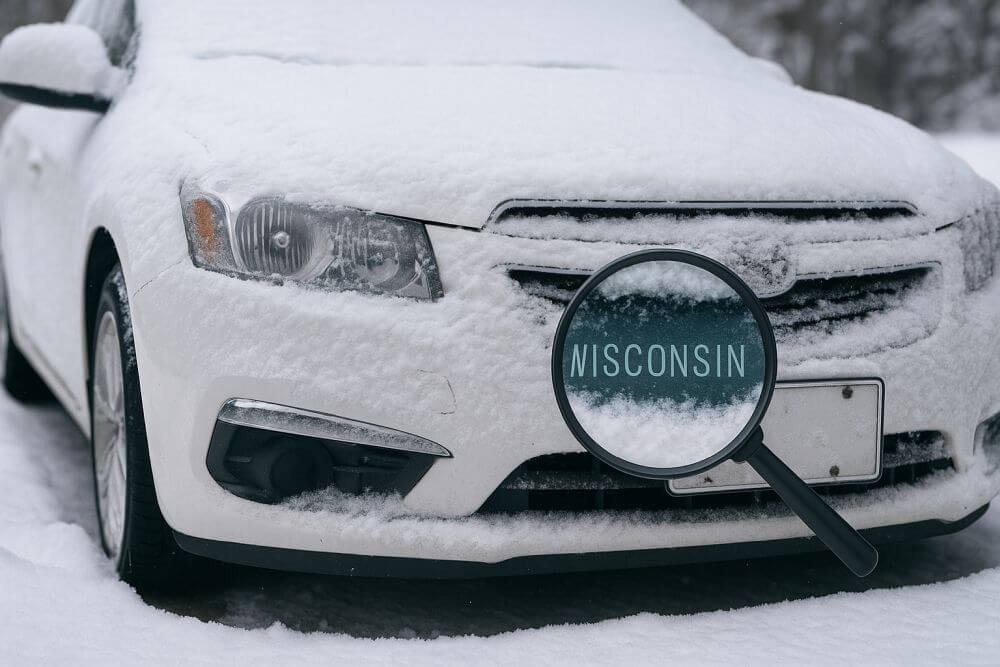When you spot an unfamiliar vehicle parked near your property, experience a hit-and-run, or consider buying a used car through a private seller, one of the first questions that may cross your mind is: “Can I find out who owns this car by the license plate?”

While technology and data services have made vehicle history information more accessible than ever, the question of identifying a vehicle owner based solely on their license plate comes with strict legal boundaries—primarily governed by the Driver’s Privacy Protection Act (DPPA).
In this guide, we’ll break down what’s legal, what’s not, and how you can use legitimate tools like our Vehicle Owner Lookup tool to access ownership history while staying fully compliant with U.S. privacy laws.
Why Someone Might Want to Run a License Plate Search
People search for license plate information for several legitimate and often urgent reasons, including:
- Reporting a reckless or suspicious driver
- Verifying a private vehicle seller’s identity
- Following up on a parking lot or hit-and-run incident
- Confirming if a vehicle is stolen, salvaged, or has title issues
- Investigating a car left abandoned on personal or commercial property
However, while these intentions may be valid, accessing personal ownership details like the current owner’s name, address, or phone number based solely on a plate number is not permitted in most scenarios unless you meet specific legal criteria.
What the Law Says: Understanding the DPPA
The Driver’s Privacy Protection Act (DPPA) was enacted in 1994 to protect individuals’ personal information contained in motor vehicle records from misuse and unauthorized disclosure. It prohibits any person or organization from obtaining driver information without a permissible purpose.
This means you cannot legally run a license plate to get the registered owner’s identity unless:
- You’re a law enforcement officer or government agent
- You’re involved in a legal investigation or court proceeding
- You have written consent from the individual
- You are a licensed business (e.g., insurance companies or tow services) verifying ownership
- You are performing vehicle history checks that don’t include personal data
Any violation of the DPPA can result in federal civil penalties, including fines and damages, and may lead to criminal charges if misuse is proven.
What You Can Legally Access With a License Plate Search
Although full ownership details are protected under federal law, a license plate lookup can still yield important vehicle-related information, including:
- Vehicle year, make, model, and trim
- Title status (clean, salvage, rebuilt, etc.)
- Odometer readings
- Open recall notices
- Lien records (where permitted)
- Registration state and status
- Theft records or recovery status
- Historical accidents or damage reports
This data is aggregated from public, commercial, and government records and is fully compliant with the DPPA—as long as personally identifiable information (PII) like the owner’s name is not displayed without legal authorization.
Use Our Vehicle Owner Lookup Tool to Check Legal Ownership History Instantly
VinCheckPro.com provides a safe, secure, and legal way to run license plate or VIN-based checks on any vehicle in the United States.
Our Vehicle Owner Lookup tool taps into millions of verified vehicle history records, allowing you to:
- Validate if a vehicle’s ownership history matches the seller’s claims
- View any reported changes in title, salvage, or lien status
- Access registration state, renewal activity, and odometer milestones
- Screen for signs of fraud, including VIN cloning or fake titles
Whether you’re doing due diligence before buying a used car, or following up after an incident, this tool provides the essential history you need—without breaching privacy laws.
Scenarios Where Owner Lookups Are Permitted
There are specific cases where accessing full ownership details is allowed under the DPPA. These include:
1. Law Enforcement Investigations
Police and authorized investigators can run license plate checks to locate suspects, investigate vehicle-related crimes, or process citations.
2. Insurance Claims
Insurance companies may use license plate data to confirm vehicle damage, verify policy coverage, and process fraud investigations.
3. Lien or Loan Verification
Banks and lenders can confirm whether a vehicle has a lien and who legally owns the vehicle in question.
4. Repossession Services
Licensed repossession agents can access ownership data to recover financed vehicles legally.
5. Legal Proceedings
Attorneys or investigators can file legal motions to access plate data for lawsuits, personal injury claims, or civil disputes involving vehicle ownership.
In all these cases, the individual or business must file under a permissible use clause, often with supporting documentation or government-issued credentials.
What You Cannot Use License Plate Data For
It’s illegal to use license plate lookup services for the following purposes:
- Harassment, stalking, or retaliation
- Unsolicited marketing or data collection
- Background checks without consent
- Tracking individuals for personal reasons
- Publishing owner details online or social media
Even if you find a third-party site claiming to provide “owner name and address” from a license plate, proceed with extreme caution—many are either scams, outdated, or operate in violation of federal law.
Related Resources from VinCheckPro.com
Looking for more ways to learn about a vehicle’s past without violating privacy laws?
Here are other tools you can try:
- Free VIN Check – For full VIN-based history reports
- Lien Check Tool – For loan and lien status
- Odometer Rollback Checker – For mileage fraud detection
- Car Value by VIN – To estimate fair market pricing based on history and ownership
Each report pulls from trusted sources, including government agencies, auction records, insurance carriers, and state DMVs.
Final Takeaway: Know Your Limits, Protect Your Rights
While it’s natural to want to trace the ownership of a vehicle using a license plate number, doing so outside of legal boundaries can carry serious consequences. Fortunately, there are many compliant ways to uncover valuable details about a vehicle—without risking a DPPA violation.
Before making a used car purchase, filing a complaint, or gathering evidence, start with the facts. Use trusted vehicle history tools like those offered by VinCheckPro.com to get the insight you need—safely and legally.
Need to confirm a vehicle’s registration status or history?
👉 Try our Vehicle Owner Lookup tool today and get instant access to title history, theft records, and registration data—with no risk to privacy compliance.
Let me know if you’d like a featured image generated for this article (no text overlay, 1200×630 landscape format) such as a license plate check interface or a privacy shield illustration.


